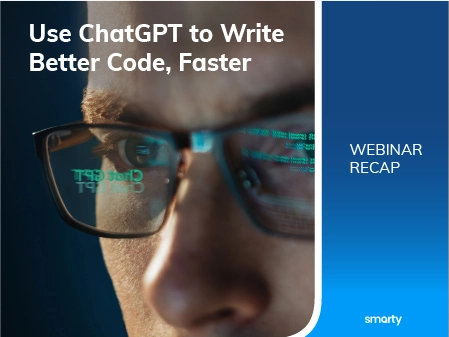
In our recent webinar, we brought together two of our software engineer experts, Adam Charlton and Ryan Cox, to demonstrate how to build a working application using ChatGPT to generate most of the code.
We know what you're thinking: ChatGPT can't take our jobs; we've tried.
This is wonderfully true. ChatGPT can pull together useful bits of information but still needs to be guided and curated by a human, preferably one with subject knowledge.
The exact working scenario given by Adam and Ryan was:
Write code in Python that takes an address and delivers the ten closest addresses to that address. The use case is you have a client that like your services, and you want to advertise to all of their neighbors.
On the first run, ChatGPT did deliver code that, when plugged into the terminal, pushed out an address. Unfortunately, it was only the exact address that was input.
One of the critical points that Ryan and Adam spoke about is knowing how to debug the code that ChatGPT spits out.
Here are some tips they gave us in spot-checking code from ChatGPT.
-
ChatGPT only has knowledge through September 2021: When you ask ChatGPT to write code referencing data on a website, know that it’s pulling that data from the 2021 version of that website. When we asked it to look at the Smarty code, we had to reference SmartyStreets, our company name, in 2021.
-
Be very specific, or ChatGPT will guess: We asked ChatGPT to use a Smarty address API to solve our problem, but we weren't specific about which one. ChatGPT then pulled the first API it found that met the criteria, and we had to adjust our request to find the specific API needed.
-
If you want specific data to be referenced, feed that data to ChatGPT: While its general knowledge is several years old, you can feed ChatGPT reference code or data to pull from in its next response. There's, of course, a risk of giving it proprietary information, so be aware of that.
-
ChatGPT is not deterministic: You can ask the same question of ChatGPT several times and get a different answer each time. This can cause problems if you're leaning on ChatGPT too heavily.
Watch the full webinar recording for even more helpful tips and to see exactly how Adam and Ryan were able to get a working application in only 30 minutes.
If you want to follow along with them, you can get 1,000 free lookups with a free account today.

 Andrew Townsend
Andrew Townsend